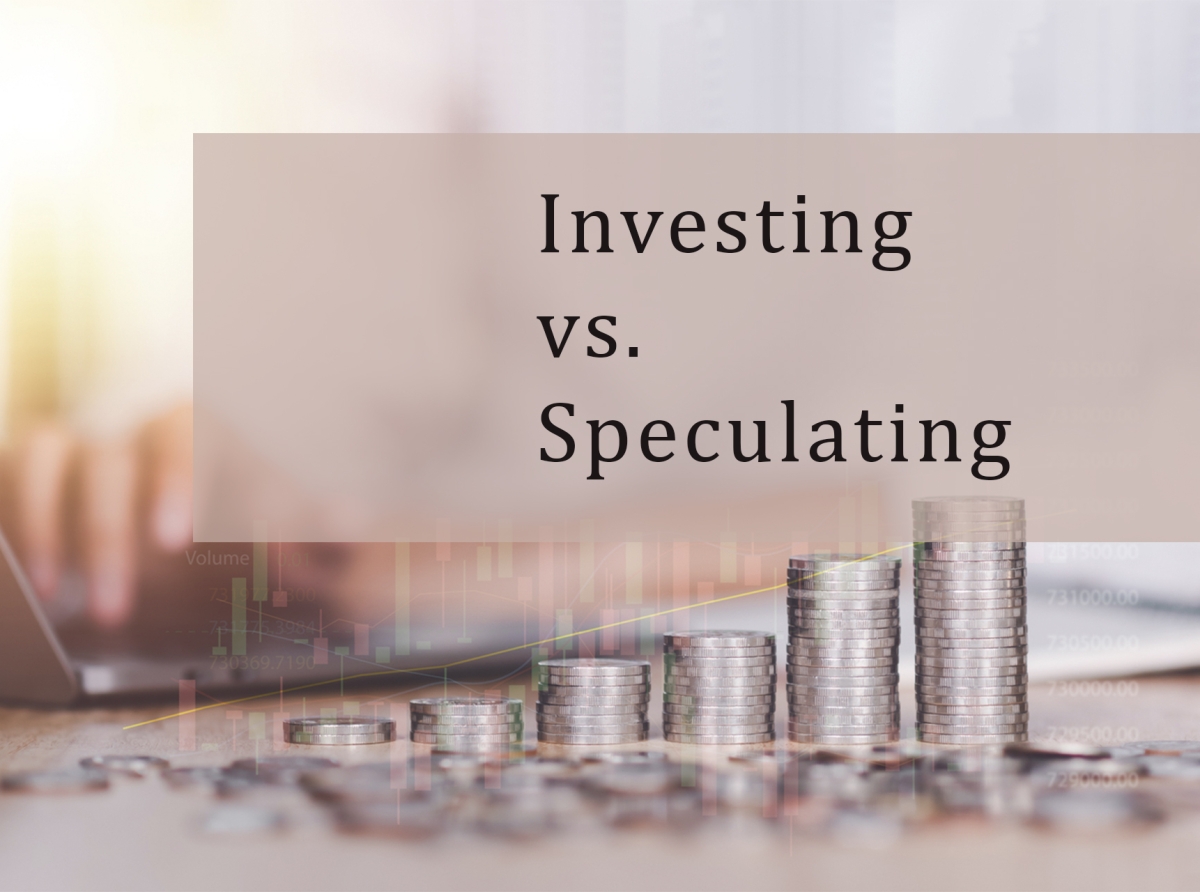
Investing vs. Speculating
The world of financial markets offers two primary approaches to growing wealth: investing and speculating. While both involve buying and selling assets, they differ fundamentally in their goals, time horizons, and risk profiles.
Understanding the distinction between the two is crucial for anyone looking to build long-term wealth. This article explores the key differences between investing and speculating, the risks and rewards associated with each, and how to make informed decisions that align with your financial goals.
Understanding the distinction between the two is crucial for anyone looking to build long-term wealth. This article explores the key differences between investing and speculating, the risks and rewards associated with each, and how to make informed decisions that align with your financial goals.

Investing vs. Speculating
What is Investing?
Investing is the process of allocating resources, usually money, with the expectation of generating a return over the long term. Investors typically focus on assets that have the potential to grow in value or produce income, such as stocks, bonds, real estate, or mutual funds. The core principles of investing include:Long-Term Focus: Investors aim to build wealth gradually over years or decades. They are less concerned with short-term price fluctuations and more focused on the underlying value of their assets.
Fundamental Analysis: Investors analyze the financial health, competitive position, and growth prospects of the companies or assets they invest in. They look for businesses with strong fundamentals, such as consistent earnings, solid management, and a competitive advantage.
Risk Management: Investors diversify their portfolios to spread risk and avoid putting all their eggs in one basket. They also prioritize preserving capital while seeking steady returns.
Patience and Discipline: Successful investing requires patience and the ability to stay the course during market volatility. Investors understand that wealth accumulation is a marathon, not a sprint.
What is Speculating?
Speculating, on the other hand, involves taking on higher levels of risk in the hope of achieving significant profits in a short period. Speculators often focus on assets with high volatility, such as penny stocks, cryptocurrencies, or derivatives like options and futures. Key characteristics of speculating include:Short-Term Focus: Speculators aim to profit from short-term price movements, often holding assets for days, hours, or even minutes.
Market Timing: Speculators rely on technical analysis, charts, and patterns to predict price movements. They often ignore the underlying value of the asset.
High Risk, High Reward: Speculating can lead to substantial gains, but it also carries a high risk of significant losses. Speculators are more likely to experience extreme volatility in their portfolios.
Emotional Decision-Making: Speculation often involves impulsive decisions driven by fear, greed, or market hype. This can lead to poor outcomes, especially for inexperienced traders.
Key Differences Between Investing and Speculating
While both investing and speculating involve buying and selling assets, they differ in several critical ways:Time Horizon: Investing is long-term, while speculating is short-term.
Risk Tolerance: Investors prioritize capital preservation and steady growth, while speculators embrace high risk for the chance of high rewards.
Analysis Approach: Investors rely on fundamental analysis, while speculators focus on technical analysis and market trends.
Emotional Involvement: Investing requires patience and discipline, while speculating often involves emotional decision-making.
The Risks of Speculating
Speculating can be tempting, especially during bull markets when asset prices are rising rapidly. However, it comes with significant risks:Loss of Capital: The high volatility of speculative assets means that losses can be substantial and swift.
Lack of Control: Speculators are often at the mercy of market sentiment, news events, and unpredictable price swings.
Emotional Stress: The constant pressure to make quick decisions can lead to stress, anxiety, and burnout.
Unsustainable Returns: While some speculators achieve impressive short-term gains, these returns are often difficult to sustain over time.
The Rewards of Investing
Investing, while less glamorous than speculating, offers several advantages:Compound Growth: Over time, the power of compounding can turn modest returns into significant wealth.
Lower Stress: A long-term focus reduces the need to constantly monitor the market and make quick decisions.
Predictability: While no investment is entirely risk-free, a well-diversified portfolio of quality assets is more likely to deliver steady returns.
Alignment with Goals: Investing aligns with long-term financial goals, such as retirement, education, or wealth preservation.
How to Choose Between Investing and Speculating
The choice between investing and speculating depends on your financial goals, risk tolerance, and time horizon. Here are some guidelines to help you decide:Define Your Goals: Are you looking to build long-term wealth or achieve quick profits? Your goals will determine which approach is more suitable.
Assess Your Risk Tolerance: If you’re uncomfortable with the possibility of losing money, investing is likely a better fit. If you can handle high risk and volatility, speculating might be an option.
Educate Yourself: Both investing and speculating require knowledge and skills. Take the time to learn about financial markets, analysis techniques, and risk management.
Start Small: If you’re new to financial markets, start with investing to build a solid foundation. Once you gain experience, you can explore speculating with a small portion of your portfolio.
The Role of Discipline and Patience
Whether you choose to invest or speculate, discipline and patience are essential. Here’s how to cultivate these traits:Stick to Your Plan: Avoid making impulsive decisions based on market noise or emotions.
Diversify: Spread your investments across different asset classes to reduce risk.
Stay Informed: Keep up with market trends and news, but don’t let them dictate your decisions.
Learn from Mistakes: Every investor and speculator makes mistakes. Use them as learning opportunities to improve your strategy.
Conclusion: The Choice of a Wise Investor
Investing and speculating represent two distinct approaches to financial markets. While speculating can offer the allure of quick profits, it comes with high risks and emotional challenges. Investing, on the other hand, provides a more stable and sustainable path to long-term wealth creation.A wise investor understands the importance of aligning their strategy with their goals, risk tolerance, and time horizon. By focusing on quality assets, practicing discipline, and staying patient, you can build a portfolio that stands the test of time. Remember, the key to success lies not in chasing quick wins but in making informed, thoughtful decisions that support your financial future. Choose wisely, and let your money work for you.









Report
My comments